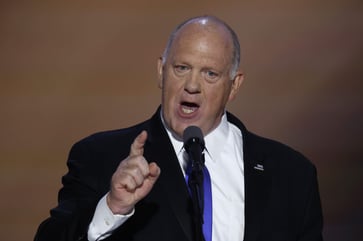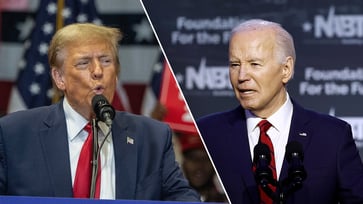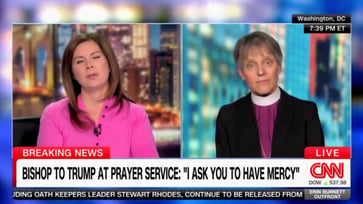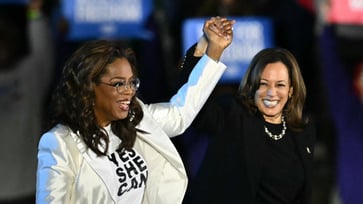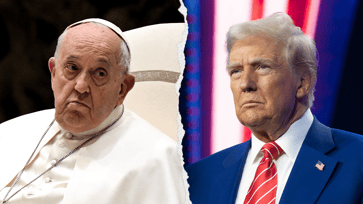Experts warn that Trump's plan to eliminate the Department of Education could drastically alter public schools.
Some suggest that federal student aid, federal programs, and district funding could be affected.
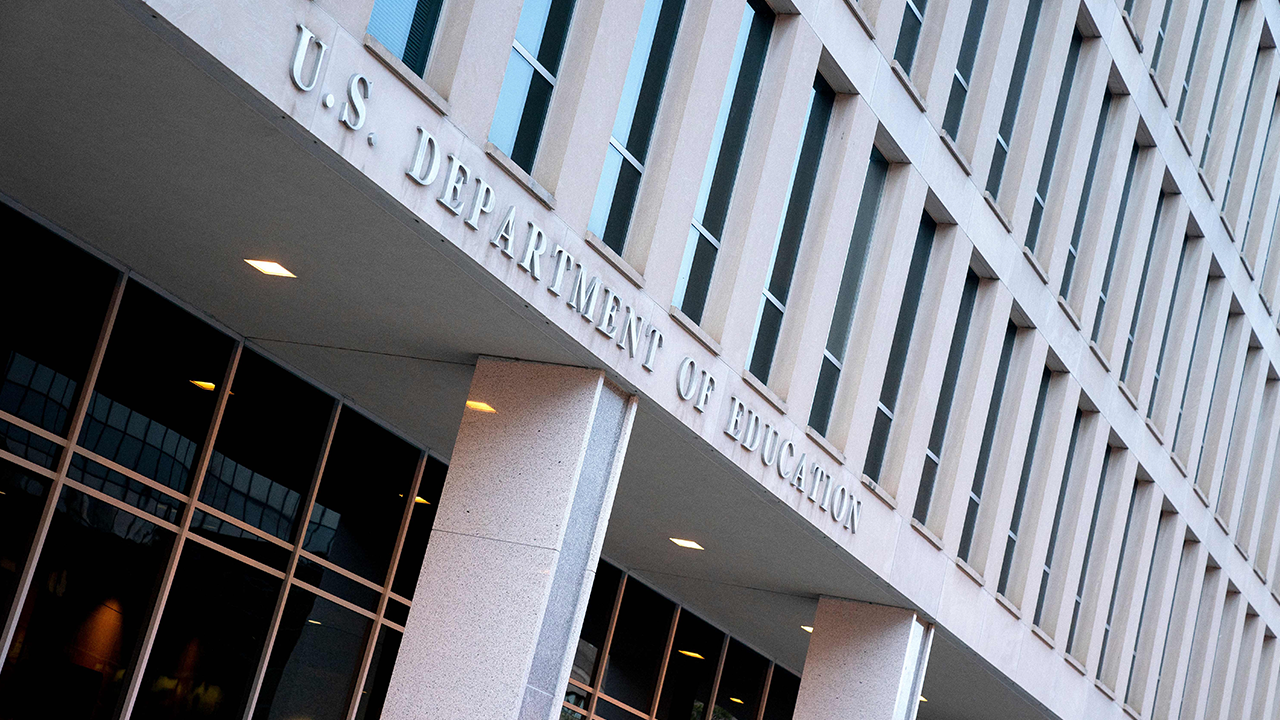
Will the U.S. Department of Education eventually become a historical artifact, or will it continue to exist?
President-elect Donald Trump's cornerstone ambition is to shut down the DOE and send all education and education work back to the states.
The Department of Government Efficiency (DOGE), led by Vivek Ramaswamy and Elon Musk, is proposing to dismantle bureaucracy and restructure federal agencies to improve efficiency, and it seems that both co-leaders and other stakeholders are in agreement, giving the proposal momentum.
Conservatives contend that the department is an excessive bureaucracy that hinders innovation and fails to achieve its objectives, while liberals maintain that it offers stability and enables the implementation of more comprehensive policies, such as civil rights protections, reducing educational disparities, and addressing systemic inequalities.
In 1980, the Department of Education was established as a separate agency from the U.S. Department of Health, Education and Welfare, with the goal of fulfilling President Jimmy Carter's campaign promise to the National Education Association (NEA). Despite this, its creation was met with opposition from lawmakers and educators who worried about increased federal control or policies that catered to teachers' unions.
The idea of eliminating the Department of Education has been proposed before. During his presidency, Reagan advocated for its abolition, but his efforts, as well as those of Republicans since, have been unsuccessful.
Although there are calls for the agency's dissolution, abolishing it is politically challenging and unlikely to occur due to the need for congressional approval.
Here are five ways eliminating the DOE could change public education:
More localized control

The immediate change of abolishing the federal Department of Education would be the transfer of authority over schools to state and local governments, enabling schools to personalize policies according to regional values and priorities.
According to Max Eden, a senior fellow at the American Enterprise Institute (AEI), although the federal government contributes only 10% of the funding for public schools, it effectively sets more than half of the policy.
Eden stated that if the Department were cut, the federal financial contribution would likely remain stable, but schools would have more freedom to govern themselves according to local priorities and values.
Rewritten: The decentralization of education could result in disparities in standards and resources among regions.
Randi Weingarten, president of the American Federation of Teachers, highlighted the significance of having a federal agency similar to the DOE to ensure that federal aid reaches the most disadvantaged students while safeguarding the rights of vulnerable learners.
Michelle Exner, a senior adviser at Parents Defending Education, argued that the DOE has prioritized bureaucracy over results by defending decentralization.
The Biden administration has used the Department of Education to promote their political agenda on children over the past four years. To maintain the current level of mediocrity in America is not an acceptable choice, she stated.
According to Jonathan Butcher, a senior research fellow at the Heritage Foundation, removing federal supervision could decrease administrative responsibilities, as stated in an interview with Planet Chronicle Digital. He explained that the Department of Education's main duty is to transfer federal funds to states and districts, but with each new rule and program, the agency adds more work for state officials.
Funding for low-income areas

Supporters of the department argue that its elimination would negatively impact federally-funded programs such as Title I, IDEA, and the Child Nutrition Act, which provide resources to districts with high percentages of low-income students and offer school lunches to those in need.
In 2022, the Economic Policy Institute argued that the education funding system needs to be reformed, stating that the federal government's role in public school funding is small and inadequate. The current system is considered inequitable, and without federal oversight, critics fear that disparities between high-income and low-income school districts could widen under Trump's plan.
Butcher and others contend that federal intervention has not effectively resolved disparities.
"For 50 years, the gaps in reading and math between low income and upper income students have remained unchanged despite the Department's efforts," he stated.
He proposes that federal funds for programs such as IDEA be reallocated as block grants to give states more control over spending, while the Department of Health and Human Services would oversee the program.
The president of the Libertas Network, a Libertarian think tank, agrees with the statement, pointing to longstanding inefficiencies within the DOE.
He argued that the only thing that has grown is the bureaucracy profiting from the system, as stated in the 1983 "A Nation at Risk" report. He supports dismantling the Department of Education to manage resources more efficiently at the state level.
Civil rights protections

The Office for Civil Rights (OCR) in the Department of Education enforces federal laws against discrimination in schools, aiming to provide equal access and protection for all students regardless of their background. This includes Title IX, which safeguards against sex discrimination, and Title VI of the Civil Rights Act, which guarantees protection based on race, among other laws.
There is a concern that disbanding the department could weaken oversight, resulting in decreased safeguards for vulnerable students who may be subjected to discrimination.
"The Department of Education can investigate an institution if they suspect a civil rights violation. They may request documents to aid in their investigation. Institutions generally do not want to be on the Department of Education's bad side."
This task should be reassigned to another bureaucratic agency for the sake of efficiency.
"According to Tim Villegas of the Maryland Coalition for Inclusive Education, there is a lot of fear-mongering surrounding the potential dismantling of the Department of Education. In the short term, if this were to happen, the funding would likely be redirected to another federal government agency."
Financial aid & student loans

Some experts believe that removing the Department of Education could negatively impact college plans for low-income families, while others argue that the financial aid functions of the DOE can be simplified and transferred to other government agencies.
The department manages "Pell Grants," "Direct Subsidized and Unsubsidized Loans," and "Parent PLUS Loans," as well as loan forgiveness programs, including Public Service Loan Forgiveness.
Those who oppose the abolition of the department contend that closing it would cause confusion for students who depend on its programs.
Michelle Dimino, an education program director at the left-of-center think tank Third Way, stated to Inside Higher Ed that if college access is restricted for students with financial need, it could reverse the progress made in the past decade to create a more open system of higher education for anyone who desires it.
"The uncertainty alone would be a detriment to college access," she added, "and that is full-stop terrifying."
Proponents of abolishing the Department of Energy (DOE) suggest that the Treasury Department could take over the DOE's loan and financial aid functions, as proposed in the past to delegate tasks to other agencies.

Planet Chronicle' Joshua Q. Nelson contributed to this report
media
You might also like
- Trump's second term begins, celebrities predict increase in criminal activity.
- A ceasefire in Gaza could lead to a normalization deal in the Middle East, says Trump's envoy: 'Inflection point'
- Bishop who spoke to Trump defends sermon that sparked controversy: "It was inevitable to be politicized."
- Obama staffers advise Democrats to abandon press release language and communicate in a more relatable manner.
- Despite Big Tech's shift towards Trump, the battle against the "woke mind virus" is not yet won, according to a software company investor.
